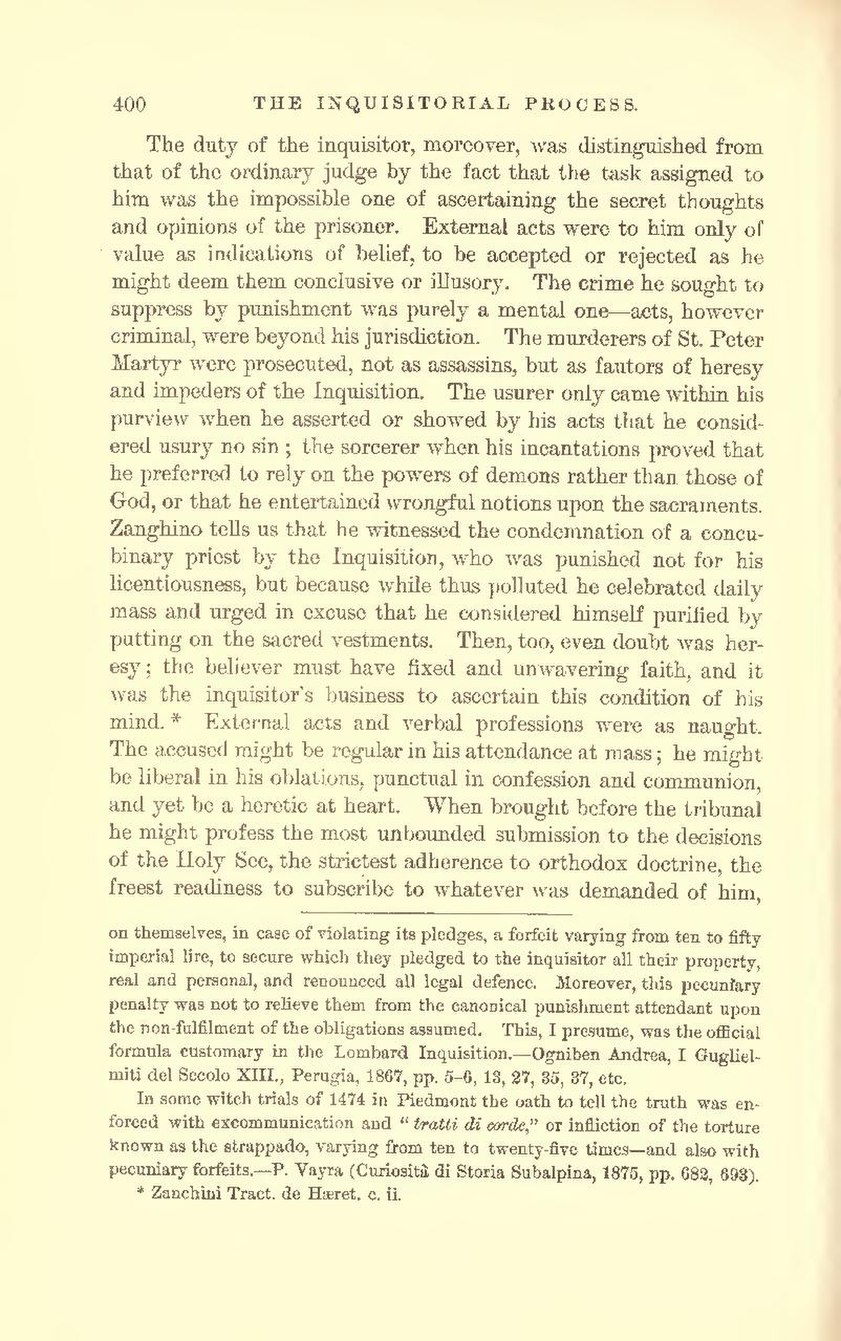The duty of the inquisitor, moreover, was distinguished from that of the ordinary judge by the fact that the task assigned to him was the impossible one of ascertaining the secret thoughts and opinions of the prisoner. External acts were to him only of value as indications of belief, to be accepted or rejected as he might deem them conclusive or illusory. The crime he sought to suppress by punishment was purely a mental one - acts, however criminal, were beyond his jurisdiction. The murderers of St. Peter Martyr were prosecuted, not as assassins, but as fautors of heresy and impeders of the Inquisition. The usurer only came within his purview when he asserted or showed by his acts that he considered usury no sin; the sorcerer when his incantations proved that he preferred to rely on the powers of demons rather than those of God, or that he entertained wrongful notions upon the sacraments. Zanghino tells us that he witnessed the condemnation of a concubinary priest by the Inquisition, who was punished not for his licentiousness, but because while thus polluted he celebrated daily mass and urged in excuse that he considered himself purified by putting on the sacred vestments. Then, too, even doubt was heresy; the believer must have fixed and unwavering faith, and it was the inquisitor's business to ascertain this condition of his mind.[1] External acts and verbal professions were as naught. The accused might be regular in his attendance at mass; he might be liberal in his oblations, punctual in confession and communion, and yet be a heretic at heart. When brought before the tribunal he might profess the most unbounded submission to the decisions of the Holy See, the strictest adherence to orthodox doctrine, the freest readiness to subscribe to whatever was demanded of him,
- ↑ Zanchini Tract. de Hæret. c. ii
on themselves, in case of violating its pledges, a forfeit varying from ten to fifty imperial lire, to secure which they pledged to the inquisitor all their property, real and personal, and renounced all lcgal defencc. Moreover, this pecuniary penalty was not to relieve them from the canonical punishuent attendant upon the non-fulfilment of the obligations assumed. This, I presume, was the official formula customary in the Lombard Inquisition.-Ogniben Andrea, I Guglielmiti del Sccolo XIII., Perugia, 1867, pp. 5-6, 18, 27, 35, 37, etc.
In some witch trials of 1474 in Piedmont the oath to tell the truth was enforced with excommunication and "tratti di corde," or infliction of the torture known as the strappado, varying from ten ta twenty-five times-and also with pecuniary forfeits.-P. Vayra (Curiosità di Storia Subalpina, 1875, pp. 682, 603).
